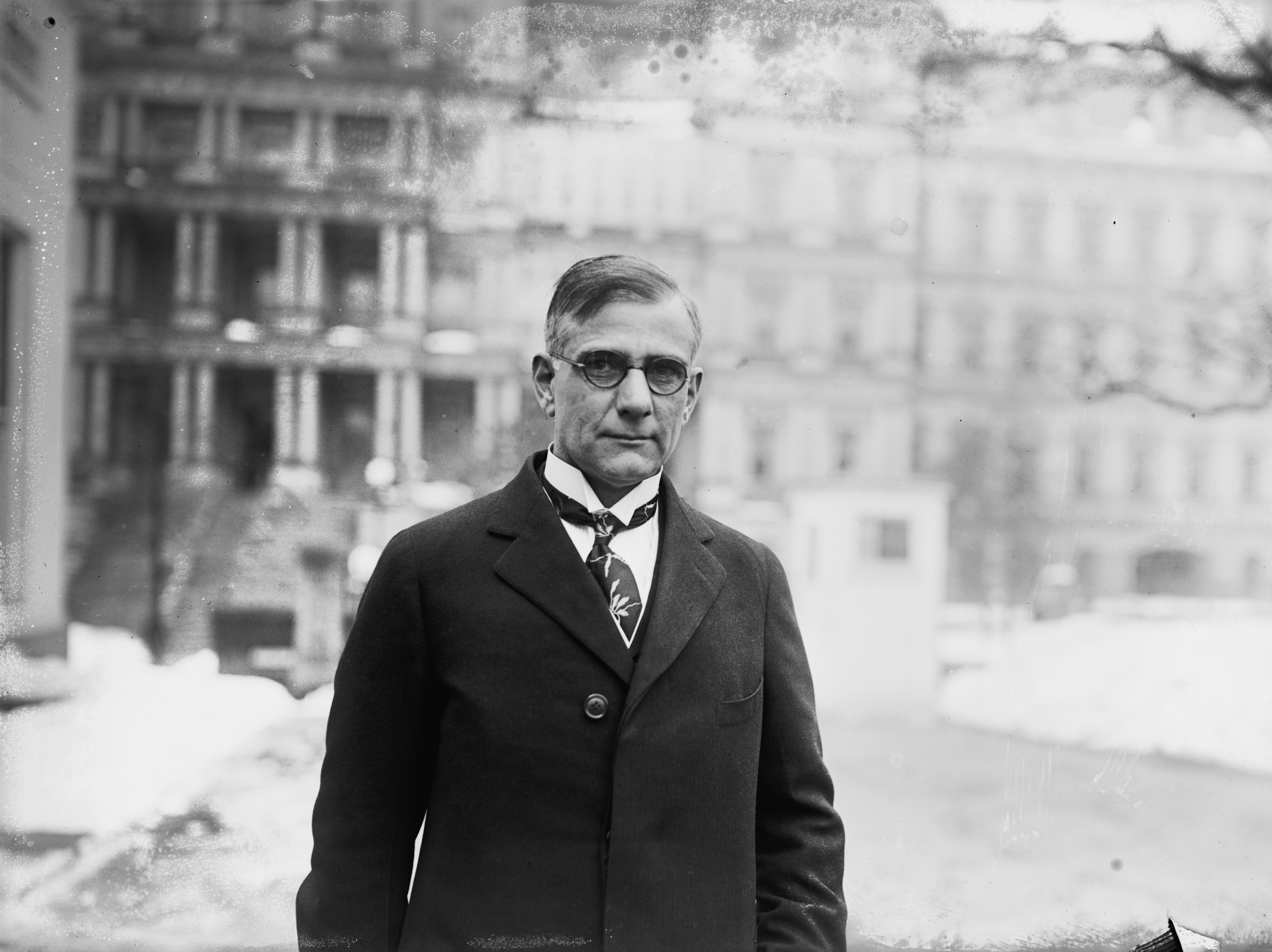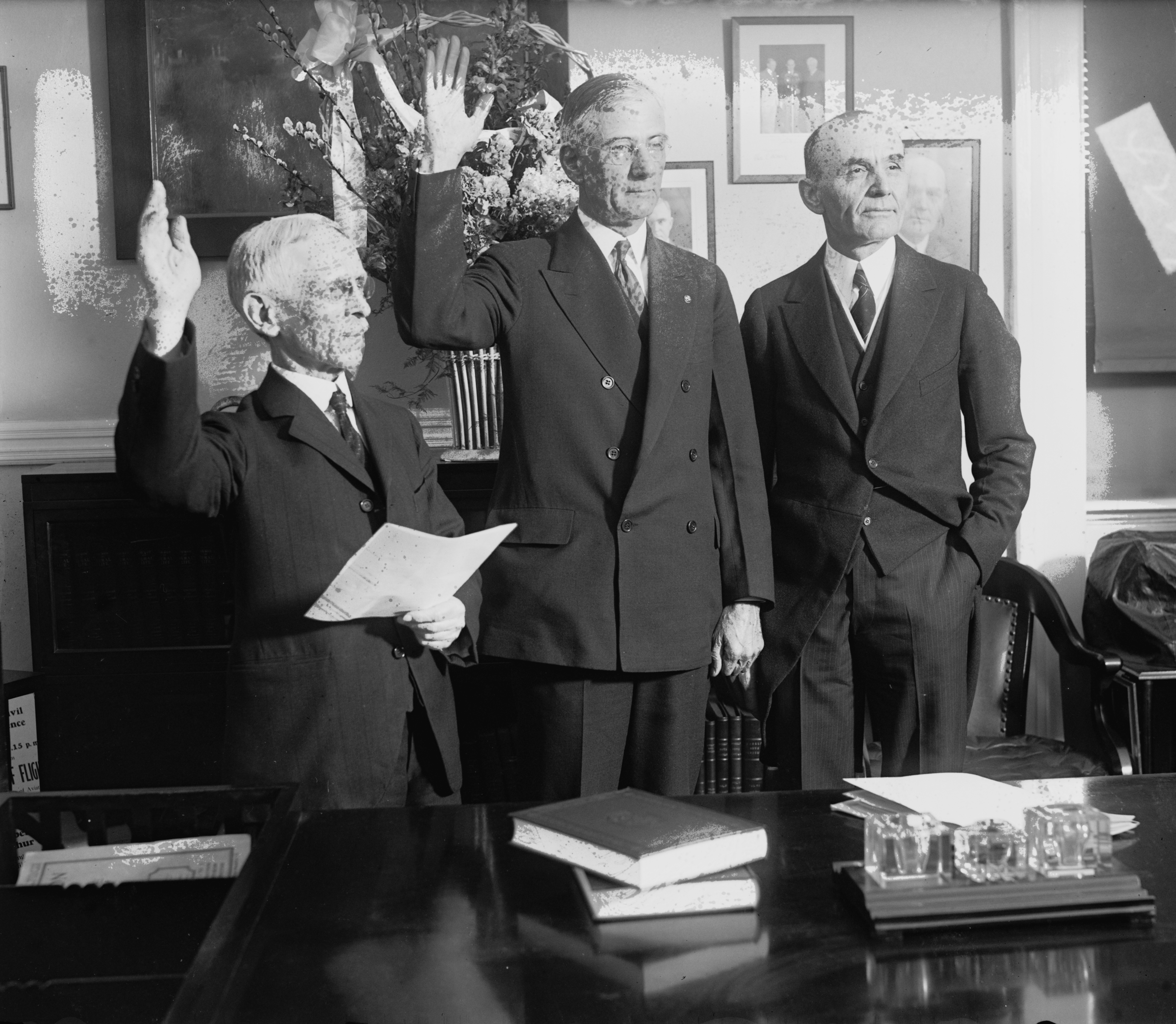1. Early Life and Education
Arthur Mastick Hyde was born on July 12, 1877, in Princeton, Missouri, to Caroline Emity Mastick and Ira B. Hyde. His family had strong ties to politics; his father, Ira B. Hyde, served as a U.S. Representative from Missouri, and his brother, Laurance M. Hyde, would later become a Chief Justice of the Supreme Court of Missouri.
Hyde received his early education at the Oberlin Academy in Oberlin, Ohio. He then pursued higher education at the University of Michigan, from which he graduated in 1899 with a bachelor's degree. During his time at the University of Michigan, he became a member of the Delta Upsilon fraternity. He continued his academic pursuits at the University of Iowa, where he completed his law degree in 1900.
2. Early Career and Local Politics
After earning his law degree, Hyde began his professional career practicing law alongside his father in Princeton, Missouri. Expanding his business ventures, he opened a Buick automobile dealership in 1911.
His entry into public service began in 1908 when he was elected as the Mayor of Princeton, Missouri. He served two terms as mayor, from 1908 to 1912. In 1912, Hyde made an unsuccessful bid for Missouri Attorney General as a member of the Progressive Party. In 1915, he relocated to Trenton, Missouri, where he continued his work as both a lawyer and an automobile dealership owner. Hyde later joined the Republican Party and became an active speaker across Missouri, participating in various fundraising campaigns.
3. Missouri Governorship
Hyde was elected as the 35th Governor of Missouri in the 1920 Missouri gubernatorial election, serving a single term from January 10, 1921, to January 12, 1925.
3.1. Key Policies and Achievements
During his first month in office, Governor Hyde initiated a comprehensive reorganization of the state government, recommending the regrouping of responsibilities into a more streamlined structure with fewer departments. Despite facing challenges from Democratic Party leaders, his administration achieved significant progress across several key areas.
Under Hyde's leadership, there were notable advancements in public education and the development of the state's road network. He oversaw the establishment and maintenance of state parks, contributing to conservation efforts within Missouri. His administration also focused on strengthening law enforcement and implementing equitable taxation policies, which helped improve the state's fiscal situation. A significant social reform during his governorship was the authorization for women to hold state office, a progressive step that expanded opportunities for women in public service.

4. United States Secretary of Agriculture
Following his term as Governor of Missouri, Arthur Hyde returned to his law practice in Kansas City, Missouri and Trenton. He was then appointed by President Herbert Hoover to serve as the United States Secretary of Agriculture, a position he held from March 6, 1929, until March 4, 1933.

Hyde's tenure as Secretary of Agriculture coincided with a period of severe economic hardship in the United States. During this time, the nation experienced a significant decline in farm prices, the Wall Street Crash of 1929, and the onset of the Great Depression. He was tasked with addressing the agricultural crisis amidst these challenging national economic conditions.
5. Later Life and Political Engagement
After his service in President Hoover's cabinet, Hyde remained actively involved in both the Methodist Church and the Republican Party. In 1935, he played a key role in organizing and speaking at the Conference of Methodist Laymen, demonstrating his continued commitment to his faith. Politically, he campaigned for Republican candidates across the nation and delivered the keynote address at the Missouri State Republican Convention in 1940, showcasing his enduring influence within the party.
6. Personal Life
On October 19, 1904, Arthur Mastick Hyde married Hortense Clara Cullers. The couple had one daughter, Caroline C. Hyde.
7. Death
Arthur Mastick Hyde died in New York City on October 17, 1947, at the age of 70, following cancer surgery. His remains were interred at the Odd Fellows Cemetery in Trenton, Missouri.
8. Legacy and Impact
Arthur Mastick Hyde's career left a notable impact on both Missouri and national affairs. As Governor of Missouri, his extensive reorganization of state government laid groundwork for greater efficiency. His administration's focus on public education, road development, and the establishment of state parks significantly contributed to the state's infrastructure and natural resource conservation. The authorization for women to hold state office during his governorship was a progressive step towards greater social equity. While his term as Secretary of Agriculture was overshadowed by the unprecedented economic challenges of the Great Depression, he played a role in the Hoover administration's efforts to address the severe agricultural crisis of the era. Hyde is remembered for his dedication to public service and his efforts to promote social progress and equitable development during a transformative period in American history.